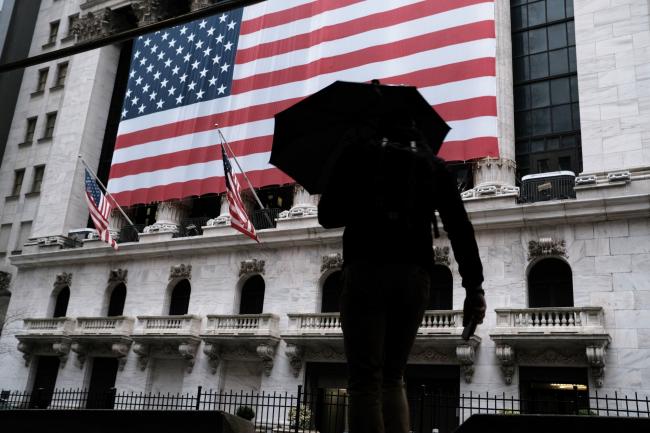(Bloomberg) -- With buybacks on the outs, people have occasionally been baffled over who’s been doing the buying as the stock market surged. One answer is corporate insiders.
Corporate executives and officers have been adding shares of their own firms over the past few weeks at breakneck speed. So much so that they’re more bullish than they’ve been at most other points in the past decade, according to Sundial Capital Research.
Over that stretch -- admittedly, one that occurred during a massive bull market -- peak episodes of insider buying have been a good sign for stocks, with the S&P 500 up a median of 20% over the next year. Widening the lens back to 1997, the benchmark gained 12.6% in the 12 months that followed forceful insider buys.
“There’s enough here to consider insider positions a positive,” Jason Goepfert, the president of Blaine, Minnesota-based research firm Sundial, wrote in a note Friday. “We just can’t assume it’s a pound-the-table buy signal like most of the other points over the past decade when trends were clearly more favorable.”
The buying is a notable display of confidence for executives and officers of S&P 500 companies after the average stock swung in a 45% range over the last month. After equities fell into a bear market as the fastest rate ever, with the index down 34% at a March low, it took just 15 days to shoot up more than 20%.
Insiders wield much less buying power than companies do repurchasing their shares, a practice that has been all but shut off as companies conserve cash. Its import is mainly symbolic, showing the people with the clearest insights into corporate health are seeing bargains.
“It’s an expression of their confidence in their companies and their confidence in the U.S. economy to adapt and to push forward in difficult times,” Brent Schutte, chief investment strategist at Northwestern Mutual Wealth Management, said by phone. “A capitalistic society adapts to changing environments, and you’re seeing some of that adaptation even in today’s environment.”
Obviously, there are no guarantees. In the first half of March, insider buys outstripped sales by the most since 2011, data from The Washington Service showed. The next week, the S&P 500 fell 15%, its worst since 2008.
During the financial crisis, insider buying picked up in October 2008 and then receded while market losses kept piling up. Demand spiked again in February 2009, and the next month stocks embarked on an 11-year bull run. After the dot-com bubble burst, insiders similarly stepped in early, in August 2001, before backing off as the sell-off continued. It wasn’t until June 2002 that heavy insider buying returned, three months into a bull market.
For Shawn Cruz, manager of trader strategy at TD Ameritrade, it could be a positive signal nonetheless.
“You’ve got investment managers who follow these markets saying equities in general are over-sold, and now you have a lot of insiders at companies coming out across the board as well and purchasing their stock,” Cruz said by phone. It “can give credence or reinforce that narrative that things are broadly over-sold for the time being.”
©2020 Bloomberg L.P.
